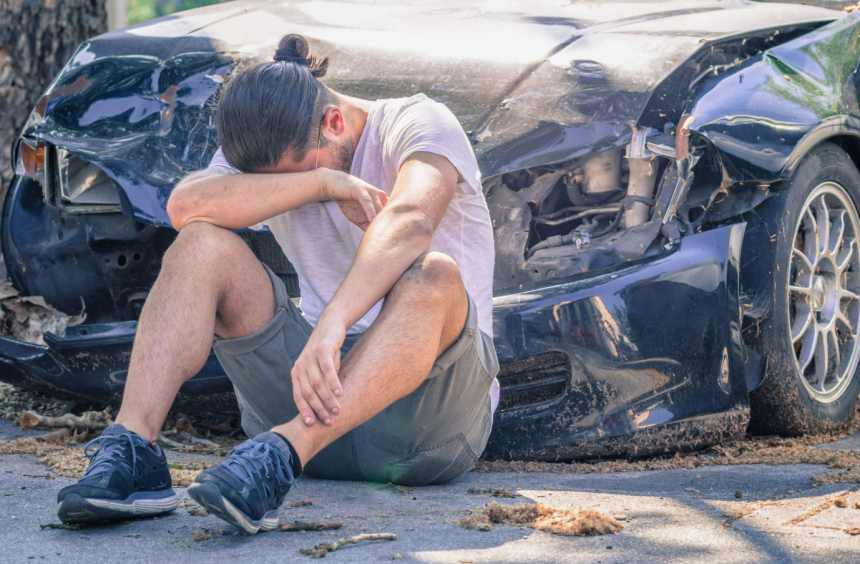Have you ever wondered about the psychological impact of car accidents on survivors? Car accidents can be traumatic events that leave lasting emotional scars. The experience can trigger a range of emotional responses, from shock and fear to anger and sadness.
- Emotional Responses
- Development of Mental Health Conditions
- Symptoms of Post-Traumatic Stress Disorder (PTSD)
- Impact on Daily Functioning
- Support and Resources for Survivors
- Frequently Asked Questions
- How Long Does It Typically Take for Survivors to Start Experiencing Emotional Responses After a Car Accident?
- Are There Any Specific Risk Factors That Contribute to the Development of Mental Health Conditions in Car Accident Survivors?
- What Are Some Less Common Symptoms of PTSD That Car Accident Survivors May Experience?
- How Does the Impact on Daily Functioning Vary Among Car Accident Survivors?
- What Alternative Support and Resources Are Available for Car Accident Survivors Who Do Not Find Traditional Therapy Helpful?
- Conclusion
Many survivors also develop mental health conditions such as anxiety and depression as a result of their ordeal. Symptoms of post-traumatic stress disorder (PTSD) are also common, with survivors experiencing flashbacks, nightmares, and hypervigilance.
The psychological impact of car accidents can significantly affect daily functioning, leading to difficulties in work, relationships, and overall quality of life. However, it’s important to remember that support and resources are available for survivors to help them navigate through their emotional journey and heal from their traumatic experiences.
Emotional Responses
Car accident survivors often experience a range of intense emotional responses. The impact of such a traumatic event can leave lasting psychological effects that may take time to heal. Coping mechanisms become crucial in navigating through these complex emotions.
Immediately after the accident, survivors may feel shock, disbelief, and fear. The suddenness and unpredictability of the event can shake one’s sense of safety and security. Many survivors may also experience symptoms of post-traumatic stress disorder (PTSD), such as intrusive thoughts, nightmares, and heightened anxiety. These emotional responses can be overwhelming and disrupt daily functioning.
In the long term, the psychological effects of a car accident can manifest in various ways. Some survivors may develop a heightened vigilance on the road, experiencing increased anxiety while driving or avoiding certain routes altogether. Others may struggle with feelings of guilt or self-blame, questioning their actions leading up to the accident. Depression, irritability, and difficulty concentrating are also common long-term effects.
Coping mechanisms play a vital role in helping survivors navigate these emotional challenges. Seeking therapy or counseling can provide a safe space to process and work through the trauma. Engaging in self-care activities, such as exercise or mindfulness, can also help manage stress and promote emotional well-being.
Understanding the range of emotional responses that car accident survivors may experience is essential in providing support and empathy. By recognizing the long-term effects and offering coping strategies, we can help survivors heal and regain control over their lives.
Development of Mental Health Conditions
Survivors of car accidents may develop various mental health conditions as a result of the traumatic experience. The impact of a car accident can be overwhelming, leaving you feeling shaken and vulnerable. It’s common to experience a range of emotions such as fear, anxiety, and depression in the aftermath of such an event. These emotional responses are normal reactions to an abnormal situation. However, for some individuals, these emotional responses can develop into more serious mental health conditions that require professional intervention.
Coping mechanisms play a crucial role in determining the long-term effects of a car accident on your mental health. How you cope with the aftermath of the accident can greatly influence your recovery. Some individuals may turn to unhealthy coping mechanisms such as substance abuse or isolation, which can exacerbate their psychological distress. On the other hand, healthy coping mechanisms like seeking support from loved ones, engaging in therapy, or participating in support groups can facilitate healing and reduce the chances of developing long-term mental health conditions.
It is important to recognize that the development of mental health conditions following a car accident isn’t a sign of weakness. Trauma affects individuals differently, and seeking help is a brave and necessary step towards healing. By understanding the impact of the accident on your mental health and utilizing healthy coping mechanisms, you can increase your chances of recovering and moving forward from this traumatic experience.
Symptoms of Post-Traumatic Stress Disorder (PTSD)
If you have experienced a car accident, it’s important to be aware of the potential symptoms of Post-Traumatic Stress Disorder (PTSD). PTSD can have a significant impact on your mental health and overall well-being. Some common symptoms of PTSD include intrusive thoughts or memories of the accident, nightmares, flashbacks, and a heightened state of anxiety or fear. You may also experience difficulty sleeping, irritability, and a sense of detachment from others. These symptoms can be overwhelming and may interfere with your daily life.
It is crucial to seek help and support if you’re experiencing symptoms of PTSD. Treatment options for PTSD typically include therapy, medication, or a combination of both. Cognitive-behavioral therapy (CBT) is often used to help individuals process and cope with traumatic experiences. This type of therapy can help you identify and challenge negative thoughts and beliefs related to the accident. Eye movement desensitization and reprocessing (EMDR) is another therapy technique that can be effective in treating PTSD.
In addition to professional treatment, there are also coping mechanisms that you can practice on your own. Engaging in relaxation techniques such as deep breathing or meditation can help reduce anxiety and promote a sense of calm. It may also be helpful to establish a routine and engage in activities that bring you joy and relaxation. Connecting with others who’ve had similar experiences can provide a sense of understanding and support.
Impact on Daily Functioning
After a car accident, the impact on your daily functioning can be significant. The struggles you face in your day-to-day life may feel overwhelming and may affect various aspects of your functioning. Tasks that were once simple and routine may now seem challenging and exhausting. It’s important to recognize that these difficulties are a normal response to the traumatic experience you have been through.
Coping with the impact on your daily functioning can be a journey of self-discovery and adaptation. You may find it helpful to establish a routine to provide structure and stability in your life. Breaking down tasks into smaller, manageable steps can also make them feel more achievable. Additionally, reaching out for support from friends, family, or professionals can provide you with the guidance and understanding you need during this time.
It is crucial to be patient with yourself as you navigate through the changes that the accident has brought into your life. Remember to practice self-care and prioritize your well-being. Engaging in activities that bring you joy and relaxation can help alleviate some of the stress and anxiety you may be experiencing.
Support and Resources for Survivors
Finding support and accessing resources is crucial for individuals who’ve experienced a car accident. The emotional and psychological impact of such an event can be overwhelming, and having a strong support system can greatly aid in the healing process.
One important resource for survivors is counseling options. Speaking with a trained therapist can provide a safe space to process and work through the trauma of the accident. Therapy can help survivors develop coping strategies, manage anxiety and depression, and regain a sense of control over their lives.
Additionally, seeking legal assistance can be beneficial for survivors who are dealing with the aftermath of a car accident. An experienced attorney can help navigate the complex legal system, advocate for the survivor’s rights, and ensure they receive the compensation they need to cover medical expenses, lost wages, and other damages.
In addition to emotional and psychological support, many car accident survivors face significant financial challenges. Medical bills, lost wages, and other expenses can quickly accumulate, adding to the stress and anxiety of recovery. In these situations, car accident loans can provide essential financial relief. These loans are designed to help survivors manage their immediate expenses while they focus on their recovery and navigate any legal proceedings. It’s important for survivors to consider all their options and choose financial solutions that best meet their needs during this challenging time.
It’s important for survivors to know that they don’t have to face the aftermath of a car accident alone. There are resources available to provide the support and guidance needed to move forward and rebuild their lives.
Frequently Asked Questions
How Long Does It Typically Take for Survivors to Start Experiencing Emotional Responses After a Car Accident?
After a car accident, emotional responses can begin soon after the event. The time frame varies, but factors like pre-existing mental health conditions and severity of the accident can influence when survivors experience these feelings.
Are There Any Specific Risk Factors That Contribute to the Development of Mental Health Conditions in Car Accident Survivors?
There are specific risk factors that contribute to the development of mental health conditions in car accident survivors. It is important to understand these factors and implement prevention strategies to support their well-being.
What Are Some Less Common Symptoms of PTSD That Car Accident Survivors May Experience?
You might experience less common symptoms of PTSD after a car accident, such as flashbacks or nightmares. Recovery strategies and coping mechanisms, like therapy and mindfulness, can help you manage these symptoms and heal.
How Does the Impact on Daily Functioning Vary Among Car Accident Survivors?
You can develop coping mechanisms to manage the impact on your daily functioning after a car accident. Support from friends and family can greatly affect your recovery process. Seek out effective strategies and lean on your loved ones for help.
What Alternative Support and Resources Are Available for Car Accident Survivors Who Do Not Find Traditional Therapy Helpful?
If traditional therapy isn’t helpful, there are alternative therapies and self-help techniques you can explore. These can include practices like mindfulness, meditation, support groups, and holistic approaches to healing. It’s important to find what works best for you.
Conclusion
In conclusion, the psychological impact of car accidents on survivors is profound and far-reaching. The emotional responses can be overwhelming, leading to the development of mental health conditions such as PTSD.
The symptoms of PTSD can significantly disrupt daily functioning and hinder the survivor’s ability to move forward. However, it’s important to remember that support and resources are available to help survivors navigate through this challenging journey.
With empathy and insight, we can better understand and assist those affected by the psychological aftermath of car accidents.















